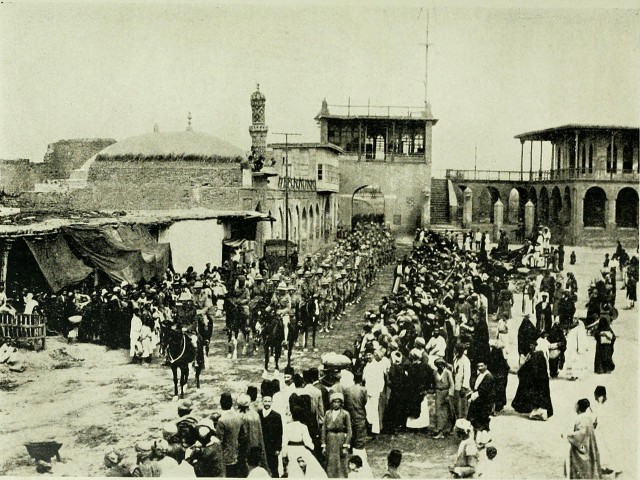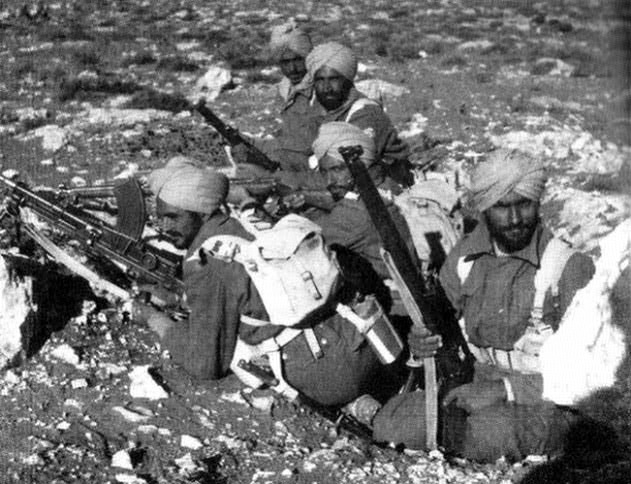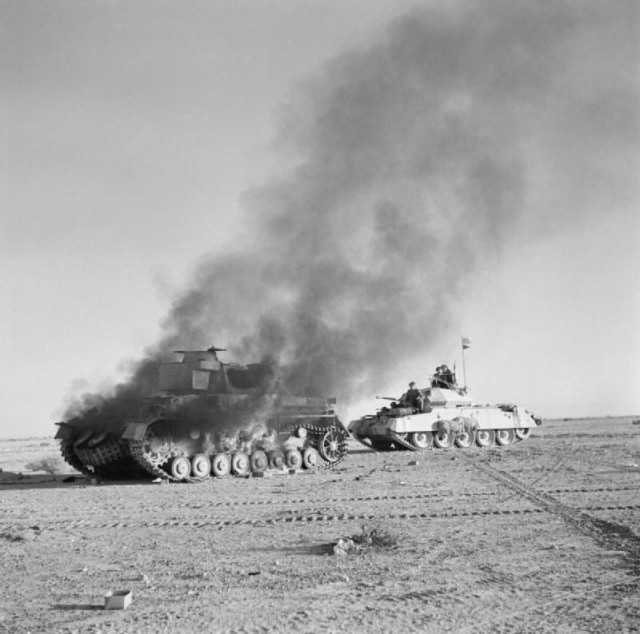The dismissal of officers in World War 2 was quite a common practice for every army that fought in the war. Whether or not these men were dismissed for simply enduring the inevitable setbacks certain to occur in a global struggle or an actual lack of competence is something for history to debate.
War is full of its ups and downs and even the brightest and most celebrated Generals are known to have endured the occasional defeat. But that doesn’t make getting fired in the middle of a war any easier to swallow and certainly not for a 40 year veteran such as General Claude Auchinleck. After squaring off with the Desert Fox in North Africa, Winston Churchill sent him packing where he would spend the rest of the war still a General, but far from the action.
It was controversial, to say the least, but were it not for such controversies, the history of war might be a little less lively.
A Career Far from Home
Born in Aldershot in 1884 to the son of an Army Colonel, it seemed Auchinleck was destined to follow in his father’s footsteps in service to his country. However, in an era where the British Empire still ruled half the world this service would take him far from home and the bulk of his career was spent in Southwest Asia and the Middle East.
After attending the Royal Military College in Sandhurst, Auchinleck would be commissioned a 2nd lieutenant in the Indian Army in 1903. The Indian Army was actually a combination of the remnants of the East India Company armies, local Indian and British expats, and British Army units posted on a tour of duty to India.

Auchinleck would deploy to India just after the reforms that merged the various fighting entities and would quickly make himself at home as he embraced the local culture by learning as much as he could. He learned Punjabi and attempted to pick up the various local dialects and customs that would allow him to better communicate with troops and the locals. When World War 1 broke out in 1914, Auchinleck would deploy with the 62nd Punjabis in modern day Iraq.
While the European theater tends to get most of the attention in World War 1, the British Empire was slugging it out with the Ottoman Empire throughout the war in the Middle East. Many of these battles, alliances, and partitions would actually set the stage for much of the conflict we see today in the modern Middle East.
During this Mesopotamian campaign, Auchinleck would prove his abilities early on after becoming the commanding officer of his regiment. He led them in the 2nd Battle of Kut and the Fall of Baghdad before being promoted to Lieutenant Colonel shortly after the end of the war.
A Road to Controversy
Between the wars, Auchinleck would spend the majority of the time in India rising through the ranks of the Indian Army and instituting a range of reforms designed to modernize it. However, this period of time would be marked by unrest in India and the British attempts to pacify the uprisings. And while one could write at length about Auchinleck’s controversial role during this time period, it would be World War 2 that would bring this General to the attention of the world and the Prime Minister of England.
Shortly after the war broke out, General Auchinleck and his nearly 40 years of experience were called back to England for the fight with Germany. He was initially tasked to command the Anglo-French ground forces in Norway which was a campaign doomed to fail from the start. After the fall of Norway, he was made General Officer Commanding-in-Chief Southern Command. Here he would command a junior Bernard Montgomery with much conflict.
Montgomery would later write that during his time under General Auchinleck that he doesn’t recall them agreeing on anything. Many believed that Auchinleck’s extensive career with the Indian Army led to him not having a full understanding of his traditional British counterparts.

In early 1941, he was recalled home to India to become the Commander-in-Chief for India. He initially drew the attention of Churchill for his aggressive response to save the Royal Air Force base in Iraq when a pro-axis regime came to power. Auchinleck sent a battalion of the Kings Own Royal Regiment and the Indian 10th Infantry Division to aggressively deal with the threat. Impressed, Churchill swapped out the then Middle East commander General Wavell for Auchinleck which would set the stage for the showdown with the Desert Fox.
Operation Crusader
Upon taking command in late 1941, General Auchinleck launched Operation Crusader which gained early success and pushed the Desert Fox back to Tobruk claiming large swaths of territory. However, in a region comprised mostly of desert, territory itself was less of a strategic importance than it might be in Europe.
This was a key distinction understood by Auchinleck and would become a major factor in his coming disagreement with Churchill. However, General Auchinleck would miscalculate the gravity of his success as he believed the Germany Army to be defeated in North Africa. This was an assessment he didn’t bother to run by Rommel.

Rommel was able to strategically withdraw and regroup for a renewed push on the British forces. Auchinleck would strategically withdraw himself to El Alamein where he would have a better chance at defense. Winston Churchill continually pressed for a counter-attack placing a premium on desert territory while Auchinleck refused the command believing the land occupied by Rommel to be of little immediate tactical importance.
With Churchill being the Prime Minister and all, Auchinleck lost that battle and was sacked. Churchill would offer Auchinleck the newly formed Persia and Iraq command, but Auchinleck refused it believing it to be a poorly organized idea.
He would return to India and actually spent a deal of time unemployed of sorts as a General for a nation in the midst of a World War. However, he would eventually again becoming the Commander-in-Chief of the Indian Army and would reach the rank of Field Marshall. The rest of the war for Auchinleck was spent in a fairly unremarkable fashion.
He would retire after overseeing the partition of India after the war. And while he spent a few years in England, he would eventually set up his home in Morocco where he would live until his death.
Experienced and yet controversial, the man who gave it to Rommel as good as he took it would live with the sting of being “retired” in the middle of a war with over 40 years of experience under his belt.
